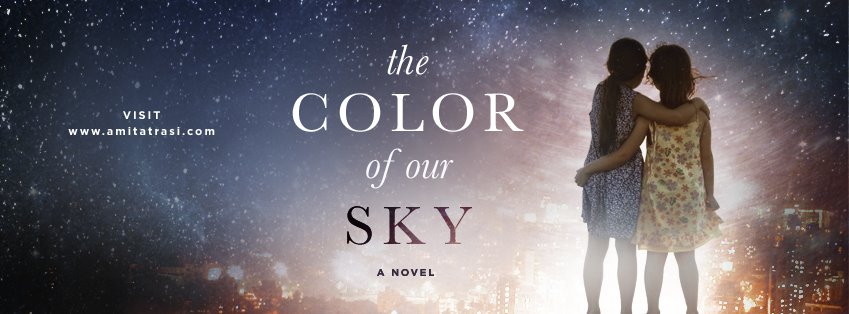Imagine not knowing you share the same blood as the low-caste girl your family adopted. The one that is a few years older but always dutifully providing you her company. Your mother admonishes your father for bringing this girl of a lesser societal status home, but for you, she’s practically a sister.
Picture also you, now, several years later, living miles away in a different country believing you share responsibility for the girl’s eventual disappearance. The girl went missing years ago and now your conscience drives you to find her. You don’t even know she’s your half-sister yet.
The girl’s name is Mukta and she was more than just a religious prostitute’s daughter.
It is a habit of mines to skim through the newly released section at the downtown Brooklyn Barnes and Nobles near my job. If I find a book that intrigues me I will bring it to the local pier in my one-hour lunch break and start reading with the beauty of the city skyline behind me. It was one of these days that I stumbled upon Amita Trasi’s ‘The Color of Our Sky.’
[Read More: Elizabeth Jaikaran’s Debut Book ‘Trauma’ Provides Healing to Women of Color]
The novel tells a story of how the lives of two girls – Tara and Mukta become intertwined in the most arbitrary of circumstances. Mukta is a ten-year-old daughter of a Devadasi, a religious sex slave who’s beauty, although breathtaking, remains marginal in the face of her caste duties. Mukta’s mom caters to men as a form of both religious servitude and to make financial ends meet. However, for Mukta it is her mother’s beauty and melodious voice with songs as below, that provides comfort before Mukta is sold into becoming a Devadasi herself. Mukta’s single happiness, her mother dies and suddenly Mukta’s world changes.
The wind races through the woods,
Over the mountains and over the sea,
I hear it now, I hear it clear,
For all it does is whisper in my ear,
Of giant kingdoms, of gallant kings,
Of pretty princesses and their gentle grooms,
Oh! The wind, it speaks to me.
Somewhere along the line after being “saved” from the Devadasi lifestyle and losing her mother, Mukta moves in with Tara – a girl who although younger is well-educated and privileged in every sense. She has a complete family, something Mukta has never known. Tara is fearless and resolute in her actions. A childhood friendship blossoms. One day, Mukta’s mother in a run for errands dies as a result of a street bombing. As a distraught child, Tara places her anger on Mukta and wishes she disappear. Tara’s wish come true.
The Color of Our Sky is a must read for those in the South Asian community because it challenges notions of caste and gender stereotypes. As a first generation South Asian in America, I recall several visits back to India where children my age were washing dishes while I enjoyed my meal. They were of a lower-caste. There was an earnest expression of humility on their faces as they performed these domestic tasks to earn money. I could not help but feel a sense of guilt that someone of my age, by societal standards was “below” me. It just did not feel right.
[Read More: Chai Tea Party Talks to Anish Patel of Uplift Humanity Which Educates the Underserved in India]
Likewise in The Color of Our Sky, Amita Trasi does an excellent job of stringing the reader on Tara’s quest to find her long-lost friend Mukta. Through her journey, Tara re-gains her sense of appreciation for Mukta and through her search discovers that Mukta was actually her own sister. There is pain the reader feels when perusing this novel, because throughout this whole novel Mukta suffers several instances of sexual abuse due to her caste. She is repeatedly sold into slavery after her disappearance, when in reality her blood is from both upper and lower caste.
You sympathize with Mukta because as a young girl she dreams of her father appearing before her doors to welcome her home. The irony sets in when Mukta moves into her father’s home as an adopted child, but is unaware she is living with her real father. She is in a sanctuary away from prostitution, but her caste always makes the difference. As a reader, you realize the cruelty that comes with caste labels. Mukta’s father may have adopted his low-caste daughter, but his failure to openly share his connection with Mukta to society belies her own well-being. While Tara gets to become educated, Mukta’s life is limited to chores and housework.
It only takes Mukta’s kidnapping for Tara and her father to finally learn their lesson.
I recommend this novel as it includes segues from the present to the past. There are flashbacks that allow you to link the missing pieces of the puzzle for Mukta’s discovery while Tara does the same. Not to mention if you are a lover of books such as A Thousand Splendid Suns and Kite Runner Hosseini you will feel the emotional pull of this novel as well.





